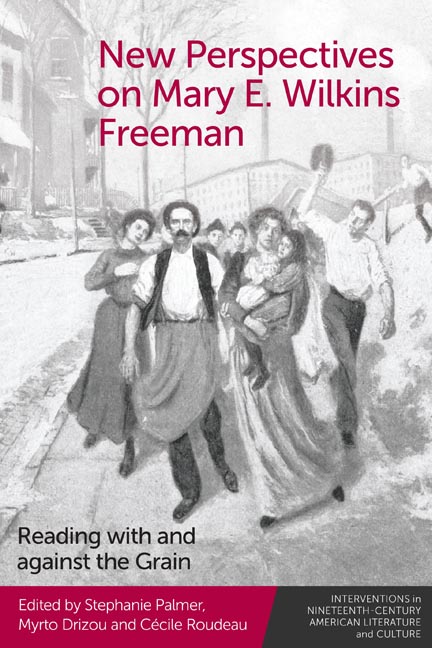Book contents
- Frontmatter
- Contents
- List of Figures
- Acknowledgments
- Contributors
- Reading Freeman Again, Anew
- Part I Kinship Outside of Normative Structures
- Part II Violent, Criminal, and Infanticidal: Freeman’s Odd Women
- Part III Women’s Work: Capital, Business, Labor
- Part IV Periodization Reconsidered
- Afterword: Why Mary E. Wilkins Freeman? Why Now? Where Next?
- Index
14 - Untimely Freeman
Published online by Cambridge University Press: 20 October 2023
- Frontmatter
- Contents
- List of Figures
- Acknowledgments
- Contributors
- Reading Freeman Again, Anew
- Part I Kinship Outside of Normative Structures
- Part II Violent, Criminal, and Infanticidal: Freeman’s Odd Women
- Part III Women’s Work: Capital, Business, Labor
- Part IV Periodization Reconsidered
- Afterword: Why Mary E. Wilkins Freeman? Why Now? Where Next?
- Index
Summary
The contemporary is the untimely.
Roland Barthes, Lectures at the Collège de France 1979–80, quoted in Agamben.
Dates matter. Born in 1852 in Randolph, Massachusetts, Mary E. Wilkins Freeman was a woman and a writer of her time and age. A housebuilder’s daughter, she grew up in a divided country, lived and worked through Reconstruction America, and died a celebrated writer, while the United States and the world were confronted with the disastrous results of capitalism gone wild. As this collection of essays has shown, Freeman also responded to the spirit of her time; her stories and novels register the social upheavals brought about by rapid industrialization, the changes in women’s lives and gender relations, the rise of xenophobia in a new imperialist age, the trauma of war, again, in the early twentieth century, and the philosophical questioning of the stability of the self under the assault of modernism. Freeman, that is, needs to be read “in time.”
But Freeman’s texts are also responding to the pressures of our present. Uncannily so. What would it mean, this chapter asks, to read Freeman out of time? To free her, and us, from the bonds of nineteenth-century epistemologies, and let her texts “speak back” to us and resonate with our own concerns, however anachronistically? Jennifer Fleissner, in her essay “Historicism Blues,” has pointed to the failings of one version of “historicism” that affirms above all “the pastness of the past—its inability to speak back to the present-day position that organizes it” (702). Such a card has been played again and again; from Fred Lewis Pattee to Perry D. Westbrook, early critics have largely contributed to attaching Freeman to a place, New England, itself the epitome of a past that was no more. On the other hand, a forced contemporaneousness has also taken its toll on nineteenth-century literature. Presentism, as Fleissner and others have observed, has its own pitfalls, one of them being to turn the past into a mere foil to our enlightened present, as if the past existed only “in order to irradiate the virtues of the present” (Fleissner 702).
- Type
- Chapter
- Information
- New Perspectives on Mary E. Wilkins FreemanReading with and against the Grain, pp. 253 - 271Publisher: Edinburgh University PressPrint publication year: 2023



